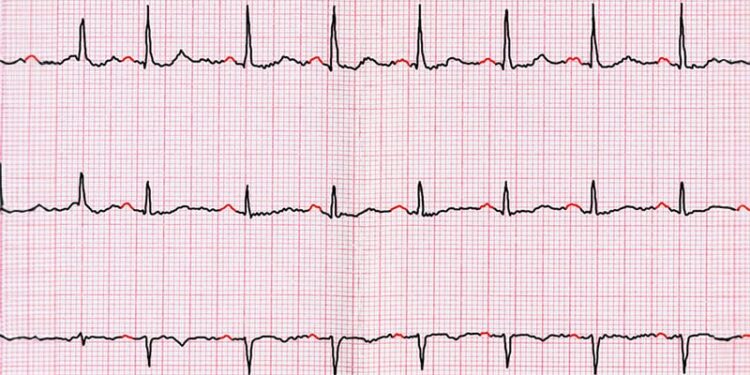Genetic testing in patients with atrial fibrillation (AF) may identify those at higher risk of developing incident cardiomyopathy or heart failure, new research from the Netherlands suggested.
In a study that included two longitudinal cohorts (the All of Us Research program and the UK Biobank), the prevalence of inherited rare gene variants associated with cardiomyopathy was twice as high in patients with AF and up to five times as high in patients with early-onset AF, defined as that occurring in people younger than 45 years.
The analysis, of 44,182 patients with AF, also found those with gene variants associated with cardiomyopathy were at a higher risk for incident cardiomyopathy or heart failure after a diagnosis of AF — about 50%-70% higher compared with noncarriers — independent of clinical and polygenic risk.
The findings appeared in JAMA Cardiology.
“If you see a young person in the clinic with AF, first of all, it’s not a good sign,” Sean J. Jurgens, MD, MSc, PhD, assistant professor in the Department of Experimental Cardiology at Amsterdam UMC, and a co-author of the study, told JAMA in an interview about the research. “The risk of heart failure and cardiomyopathies are relatively high and substantially elevated in any person with AF at a younger age. It’s not a benign disease where you only have to treat the ischemic stroke risk.”
People carrying rare pathogenic variants “are the patients you really need to look after because these will be the ones who will go on to develop heart failure more likely,” he said.
Jurgens acknowledged barriers remain with widespread genetic testing, citing cost, insurance coverage, a lack of cardiovascular genetic expertise, and the lack of genetic counselors. Genetic testing is also more widely available in a smaller country like the Netherlands. In the United States, especially outside of urban centers, accessibility is particularly limited.
“This is a very difficult problem, is why it is so important to do the right stratification,” Jurgens said. “We can’t offer it to everyone. One thing that’s good to see is that the prices, at least on the technological side are dropping.”
Jurgens said the new research may help reduce the cost of genetic testing, as it narrowed the panel of pathogenic variants from more than 100 to 26, with a high degree of confidence.
Notable Strengths
In an editorial accompanying the journal article, Olivia G. Anderson, MS, CGC, with the Division of Cardiovascular Medicine at the University of Pennsylvania Perelman School of Medicine in Philadelphia, and her colleagues called the new study “methodologically rigorous.”
The work “affirms the observation that AF can be an early phenotypic manifestation” of genetic cardiomyopathy, they wrote.
Anderson and her co-authors praised the study for generating concordant results from a sensitivity analysis using a 12-month blanking period, which reduced the likelihood patients were diagnosed with AF and cardiomyopathy at the same time.
They also said the Dutch team’s study makes a strong case for genetic testing in patients with AF, particularly for those younger than 45 years. “Their findings also highlight the increasing need for genetic counselors embedded in cardiology practices and an expanded availability of specialized cardiovascular genetics clinics,” they wrote.
This work was supported in part by the Amsterdam UMC YTF, Dutch Heart Foundation, and the AFIP Foundation; the Deutsche Forschungsgemeinschaft; the CIRCULAR NOW Consortium and the Dutch Heart Foundation, focused on genomic risk prediction in cardiomyopathies; and the American Heart Association, the European Union, and the Fondation Leducq.
Jurgens and the authors of the editorial reported no relevant financial relationships.
Marcia Frellick is a Chicago-based healthcare journalist.
Source link : https://www.medscape.com/viewarticle/genetic-tests-patients-atrial-fibrillation-may-flag-those-2025a1000est?src=rss
Author :
Publish date : 2025-06-02 11:06:00
Copyright for syndicated content belongs to the linked Source.














